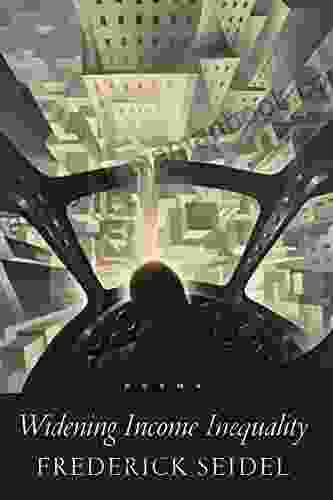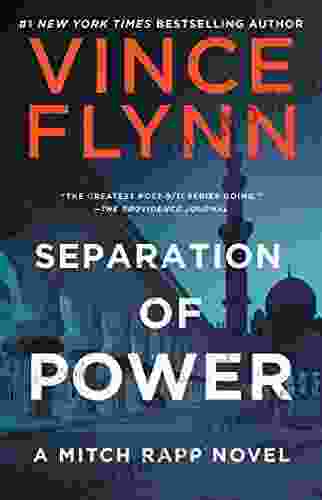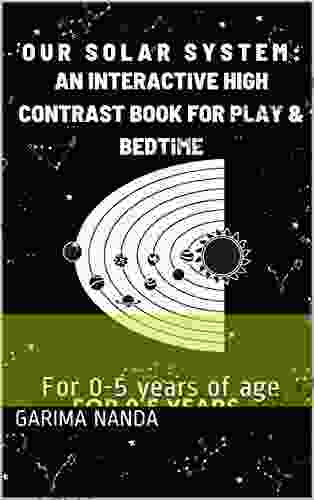Widening Income Inequality: A Poetic Exploration through the Works of Frederick Seidel

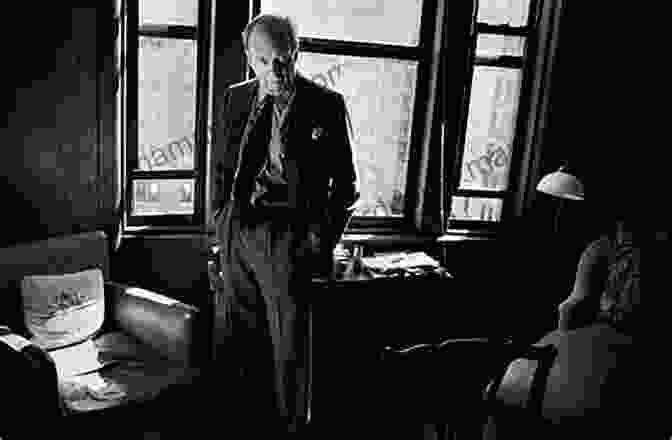
Income inequality is a persistent and pressing issue in contemporary society. It refers to the unequal distribution of income among individuals and households within a given population. This inequality can manifest in various forms, such as disparities in wages, salaries, investments, and property ownership. The consequences of income inequality are far-reaching and include reduced economic mobility, social unrest, and a decline in overall well-being.
5 out of 5
| Language | : | English |
| File size | : | 329 KB |
| Text-to-Speech | : | Enabled |
| Enhanced typesetting | : | Enabled |
| Screen Reader | : | Supported |
| Print length | : | 129 pages |
Poetry has the power to capture the complexities and nuances of human experience, including the struggles and anxieties associated with income inequality. One poet who has delved deeply into this subject is Frederick Seidel. Seidel's work confronts the harsh realities of economic disparity with unflinching honesty, providing incisive insights into the lives of the wealthy and the marginalized.
Frederick Seidel: A Poetic Witness to Inequality
Frederick Seidel (born in 1936) is an American poet known for his unflinching exploration of taboo subjects, including poverty, wealth, and violence. His poetry often depicts the excesses and injustices of the upper classes, while also acknowledging the struggles of those living in poverty.
Seidel's experiences growing up in a wealthy family gave him firsthand exposure to the disparities that exist in society. His writing reflects a deep understanding of the psychology of both the affluent and the disadvantaged. He does not shy away from portraying the selfishness, greed, and indifference that can accompany extreme wealth.
Themes of Income Inequality in Seidel's Poetry
Throughout his work, Seidel explores various themes related to income inequality:
1. The Opulence and Excess of the Wealthy
Seidel's poetry often depicts the extravagant and opulent lifestyles of the wealthy elite. He describes their lavish homes, designer clothes, and expensive art collections, contrasting these with the struggles of the poor and marginalized.

For example, in the poem "The Art of Assemblage," Seidel writes:
They live among their Picassos and Braques, Their Matisses, their Giacometti bronzes, Their Picabia, their Hockney girlie act... And all night long, When the galleries are closed and quiet, They float in their silent swimming pools, Naked and wanton, Masturbating into the water.2. The Struggles of the Poor
Seidel does not focus solely on the excesses of the wealthy. He also gives voice to the experiences of those who live in poverty. His poetry depicts the daily struggles, indignities, and limited opportunities faced by the poor and marginalized.
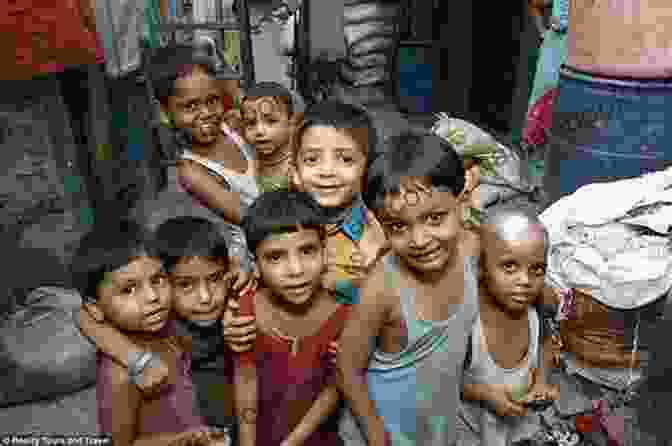
In "Autobiography," Seidel writes:
I grew up in a one-room apartment With a dirt floor and no windows. My parents worked sixteen hours a day And never made enough to eat. I went to school hungry and barefoot, And I was always the last one picked For teams in gym class.3. The Indifference of the Wealthy to the Suffering of Others
One of the most disturbing aspects of income inequality is the indifference that many wealthy individuals display toward the plight of the poor. Seidel's poetry exposes this callousness and lack of empathy.
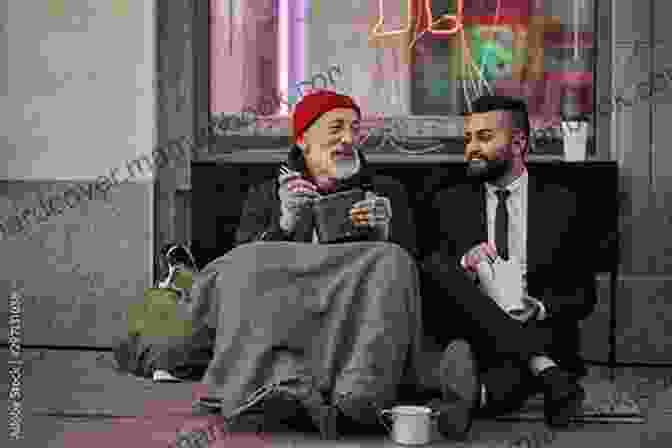
In the poem "The Poor," Seidel writes:
The poor are always with us, Jesus said, But we don't have to look at them. We can drive our cars With the windows rolled up, And listen to the radio, And sing along to the songs About how much we love each other.4. The Corrosive Effects of Wealth
While many associate wealth with happiness and fulfillment, Seidel suggests that it can also have a corrosive effect on the human soul. He depicts the ways in which wealth can lead to isolation, vanity, and a loss of meaning.

In the poem "The Rich," Seidel writes:
The rich are always looking for new ways To spend their money. They buy bigger and better houses, And faster and more expensive cars. They take exotic vacations, And eat at the finest restaurants. But they are never satisfied. They are always bored and restless. They have everything, But they have nothing.The Power of Poetry in Addressing Income Inequality
Frederick Seidel's poetry serves as a powerful reminder of the human costs of income inequality. Through his unflinching honesty and skillful use of language, he forces us to confront the ugly truths of our society.
Poetry can play a vital role in raising awareness about income inequality and its devastating effects. By giving voice to the experiences of those affected by this disparity, poetry can help to break down the barriers of indifference and apathy.
Moreover, poetry can inspire empathy and compassion. By allowing us to see the world through the eyes of others, poetry can help us to understand the challenges and struggles that they face.
Income inequality is a complex and multifaceted issue that has a profound impact on individuals, communities, and society as a whole. Frederick Seidel's poetry offers a unique and invaluable perspective on this issue, exposing the harsh realities of economic disparity and challenging our complacency.
By confronting the excesses of the wealthy, giving voice to the struggles of the poor, and exposing the corrosive effects of wealth, Seidel's poetry forces us to confront our own complicity in the perpetuation of income inequality. It is a powerful reminder that we must work towards a more just and equitable society for all.
5 out of 5
| Language | : | English |
| File size | : | 329 KB |
| Text-to-Speech | : | Enabled |
| Enhanced typesetting | : | Enabled |
| Screen Reader | : | Supported |
| Print length | : | 129 pages |
Do you want to contribute by writing guest posts on this blog?
Please contact us and send us a resume of previous articles that you have written.
 Top Book
Top Book Novel
Novel Fiction
Fiction Nonfiction
Nonfiction Literature
Literature Paperback
Paperback Hardcover
Hardcover E-book
E-book Audiobook
Audiobook Bestseller
Bestseller Classic
Classic Mystery
Mystery Thriller
Thriller Romance
Romance Fantasy
Fantasy Science Fiction
Science Fiction Biography
Biography Memoir
Memoir Autobiography
Autobiography Poetry
Poetry Drama
Drama Historical Fiction
Historical Fiction Self-help
Self-help Young Adult
Young Adult Childrens Books
Childrens Books Graphic Novel
Graphic Novel Anthology
Anthology Series
Series Encyclopedia
Encyclopedia Reference
Reference Guidebook
Guidebook Textbook
Textbook Workbook
Workbook Journal
Journal Diary
Diary Manuscript
Manuscript Folio
Folio Pulp Fiction
Pulp Fiction Short Stories
Short Stories Fairy Tales
Fairy Tales Fables
Fables Mythology
Mythology Philosophy
Philosophy Religion
Religion Spirituality
Spirituality Essays
Essays Critique
Critique Commentary
Commentary Glossary
Glossary Bibliography
Bibliography Index
Index Table of Contents
Table of Contents Preface
Preface Introduction
Introduction Foreword
Foreword Afterword
Afterword Appendices
Appendices Annotations
Annotations Footnotes
Footnotes Epilogue
Epilogue Prologue
Prologue Scott Reynolds Nelson
Scott Reynolds Nelson Dionne Haynes
Dionne Haynes Sara Driscoll
Sara Driscoll Mike Lee
Mike Lee W J Herbert
W J Herbert Lakeisha Trimm Green
Lakeisha Trimm Green Jeff Astor
Jeff Astor Karla Brandenburg
Karla Brandenburg Elon Gaezos
Elon Gaezos Elaine Landau
Elaine Landau Christof Weber
Christof Weber Cedric Kelly
Cedric Kelly Lucy Cripps
Lucy Cripps Jenny Handy
Jenny Handy David Stotelmyre
David Stotelmyre Dante King
Dante King Daniele Vacca
Daniele Vacca John Lees
John Lees Carl Phelpstead
Carl Phelpstead Chris Beckett
Chris Beckett
Light bulbAdvertise smarter! Our strategic ad space ensures maximum exposure. Reserve your spot today!
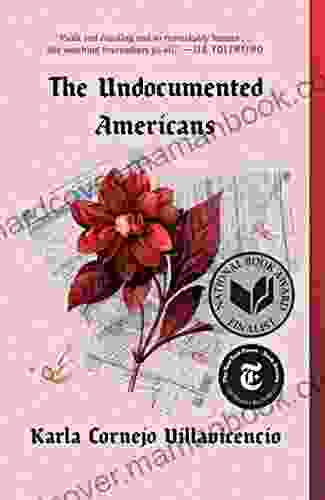
 Jerry HayesUnveiling the Hidden Lives of the Undocumented: A Journey with Karla Cornejo...
Jerry HayesUnveiling the Hidden Lives of the Undocumented: A Journey with Karla Cornejo...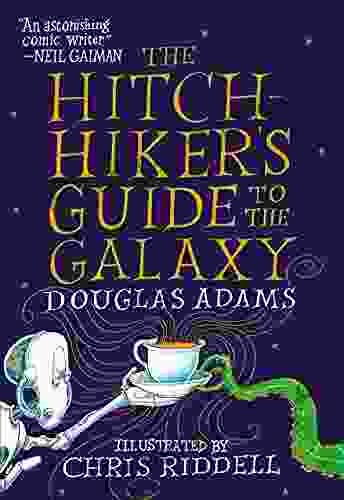
 Felipe BlairThe Hitchhiker's Guide to the Galaxy: A Literary Journey into the Absurd and...
Felipe BlairThe Hitchhiker's Guide to the Galaxy: A Literary Journey into the Absurd and... Ernesto SabatoFollow ·14.8k
Ernesto SabatoFollow ·14.8k Robert ReedFollow ·2.6k
Robert ReedFollow ·2.6k Bradley DixonFollow ·5k
Bradley DixonFollow ·5k Fernando BellFollow ·11.9k
Fernando BellFollow ·11.9k Samuel WardFollow ·10.6k
Samuel WardFollow ·10.6k Natsume SōsekiFollow ·6.3k
Natsume SōsekiFollow ·6.3k Bryson HayesFollow ·2.2k
Bryson HayesFollow ·2.2k Jacob FosterFollow ·2.8k
Jacob FosterFollow ·2.8k

 Eugene Powell
Eugene PowellComplete Guide to Using Yoga With Kids: Benefits, Tips,...
Yoga is an ancient practice that has been...
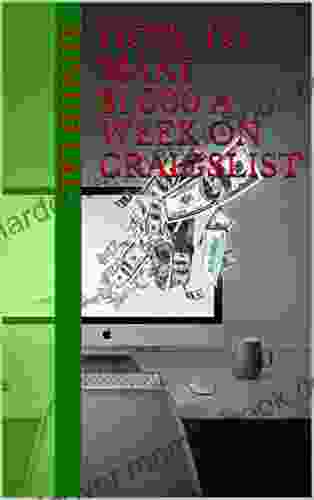
 Benji Powell
Benji PowellHow to Make $000 Per Week on Craigslist
Are you looking for a way to make extra money...
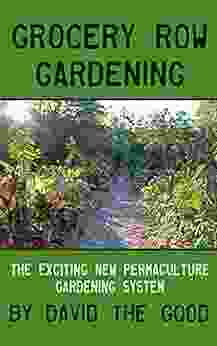
 Gabriel Garcia Marquez
Gabriel Garcia MarquezGrocery Row Gardening: The Exciting New Permaculture...
Kick-start your gardening journey with the...
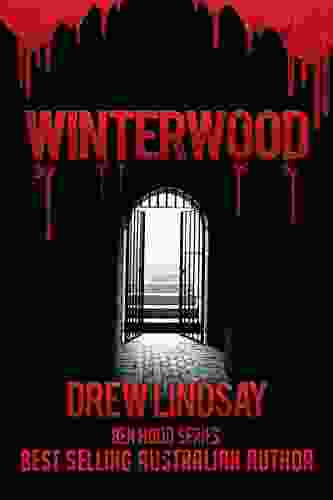
 Hayden Mitchell
Hayden MitchellUnveiling the Gripping World of Winterwood: Ben Hood...
In the annals of crime thrillers, the...
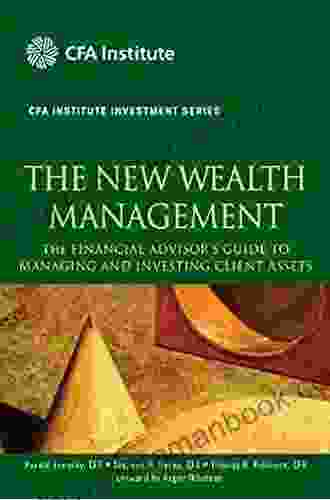
 E.M. Forster
E.M. ForsterThe Financial Advisor Guide To Managing and Investing...
As a financial...
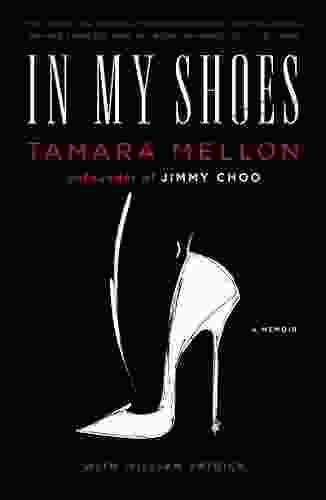
 Lee Simmons
Lee SimmonsIn My Shoes Memoir: A Poignant Journey of Resilience,...
In the tapestry of life, adversity often...
5 out of 5
| Language | : | English |
| File size | : | 329 KB |
| Text-to-Speech | : | Enabled |
| Enhanced typesetting | : | Enabled |
| Screen Reader | : | Supported |
| Print length | : | 129 pages |


